Birmingham link to Paris and Brussels attack
- Published
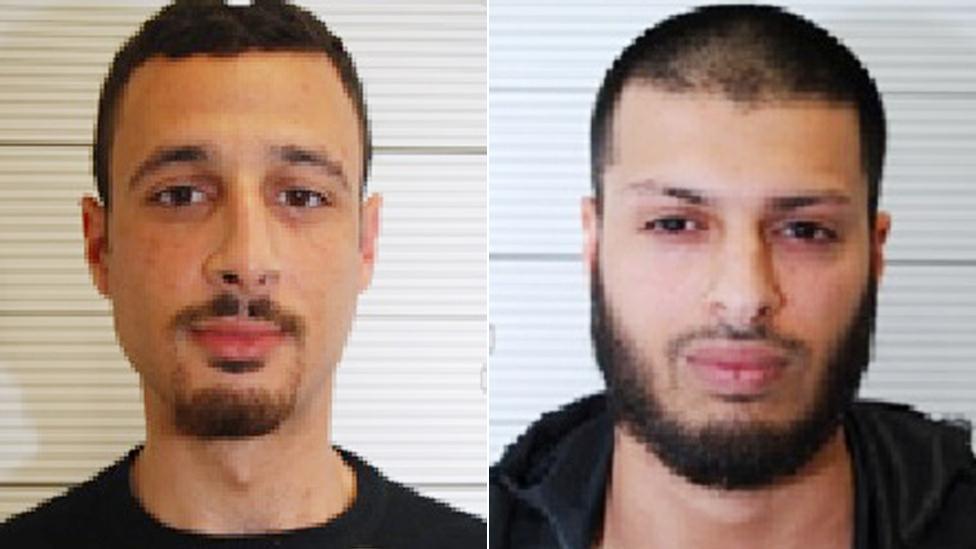
Zakaria Boufassil (left) and Mohammed Ali Ahmed will be sentenced next Monday
A man has been found guilty of giving £3,000 in Birmingham to an alleged member of the terror cell that later carried out the Paris and Brussels attacks.
Did the cash raised through benefit fraud in the UK fund the two atrocities - and what does this case tell us about the self-styled Islamic State's operations?
The meeting was straight out of a Le Carre novel. Multiple calls using different Sim cards. Counter-surveillance manoeuvres to confirm nobody was following. And finally a green light from a powerful and shadowy figure overseas for the exchange to occur.
On 11 July 2015, on a leafy path close to one of Birmingham's largest surburban parks, Zakaria Boufassil emerged to greet fellow Belgian-Moroccan Mohamed Abrini.
There was a brief exchange between the men and Boufassil handed over a bag of cash. The men parted company and Abrini, a courier for IS fighters, was gone.
Nobody other than Boufassil's accomplice, Mohammed Ahmed Ali, saw it happen. Now both men face substantial jail sentences for preparing acts of terrorism.
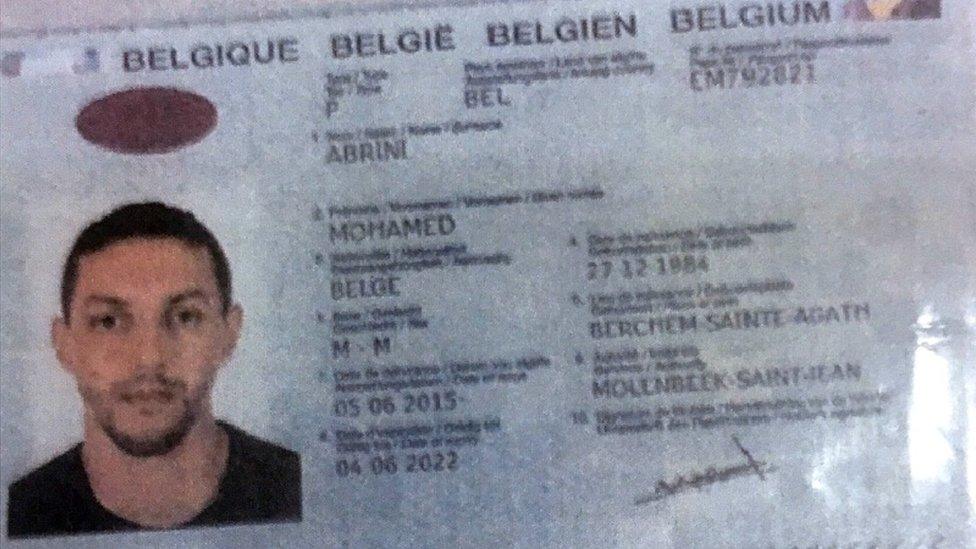
Passport: Scanned by hotels in the UK
It was months before West Midlands Counter-Terrorism Unit discovered what had happened - and how the event, four months before the Paris attacks, fitted into a bigger picture.
The first the world publicly knew of Mohamed Abrini was when he was named in an international arrest warrant as one of the perpetrators of the November 2015 attacks in which IS gunmen killed 130 people.
Then, last March, he resurfaced on CCTV footage in Brussels Airport, moments before bombs were detonated in a co-ordinated attack there and on the city's metro.
Thirty-two people died, but Abrini, dubbed "the man in the hat" because of his attire on the footage, briefly escaped.
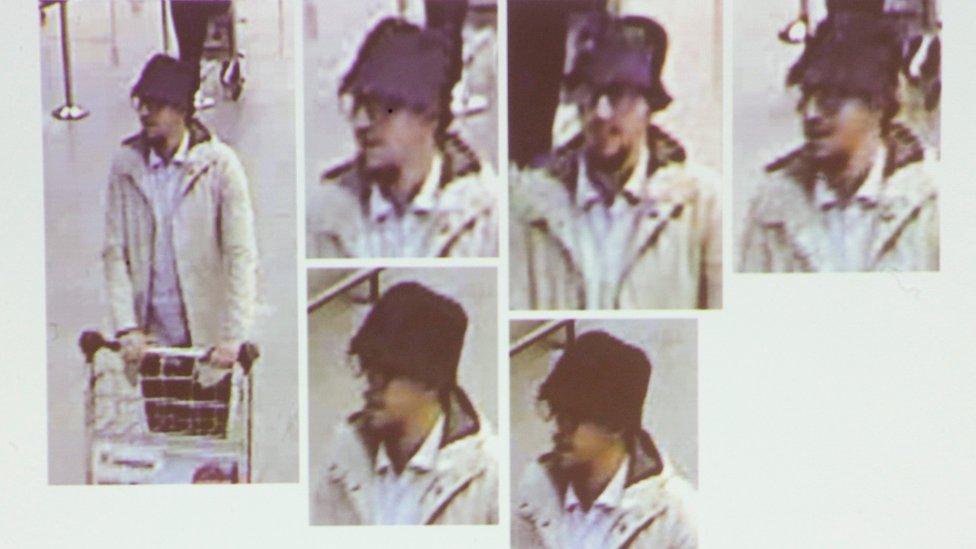
The images of a man in a hat in Brussels airport were distributed after the attack
Described at Kingston Crown Court as a former baker turned "cat burglar", Abrini grew up in the Molenbeek area of Brussels.
In early summer 2015, Abrini - then on the run from his alleged role in the Paris attacks - made it to Syria to visit the grave of his brother who had died in battle.
According to his own statement to Belgian prosecutors, Abrini was smuggled into IS territory with the help of his friend Abdelhamid Abaaoud - the organiser of the November Paris attack.
Abaaoud asked Abrini to go to the UK and pick up some cash. The mission was so important that Abaaoud provided the courier $2,000 to fund every element of the operation.
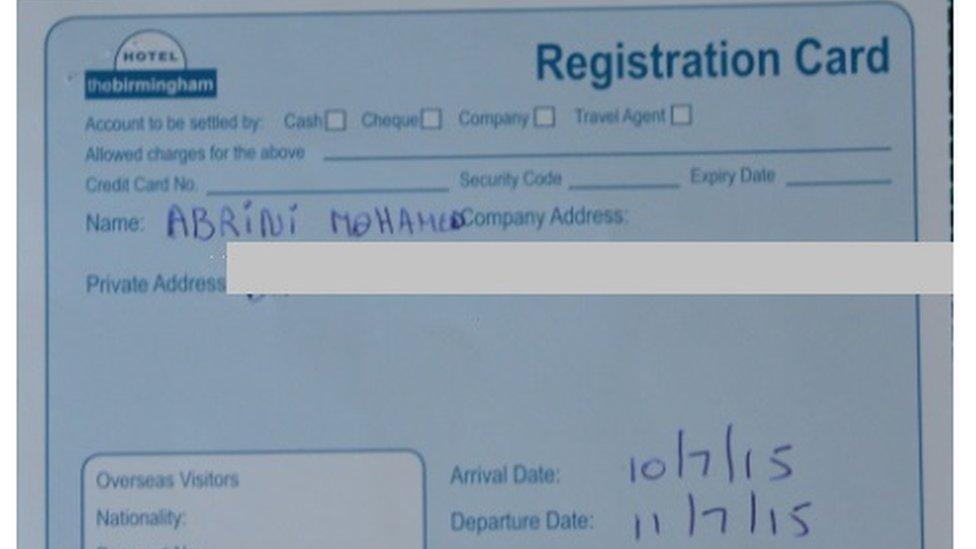
Abrini's hotel registration card
Abrini flew from Istanbul to Heathrow and, after landing, used a new British Sim card - just one of many different numbers at his disposal - to contact the men he was supposed to be meeting. They told him to take a coach to Birmingham and await further instructions.
According to evidence of mobile phone movements, during his first day in the city Abrini took a meandering route around the 40-acre landscape of Small Heath Park.
He wasn't admiring the bandstand and lake. He was following instructions by mobile phone from Boufassil and Ahmed who were checking from a distance if their contact was under surveillance.
On the second day, he was given a specific instruction to wait near a pizzeria on the Coventry Road side.
"I waited for about 10 minutes and the person arrived," Abrini told investigators.
"[He] told me to follow him while keeping a distance of between 10 and 15 metres.
"We then crossed the large park, we crossed a bridge that passes the motorway. After the bridge there was a little forest and we went into there.
"There was actually a second person who waited in the forest and it was him who had the money. Despite the nice weather I think he was hiding his head."

Avoiding detection
Abrini, Boufassil and Ahmed regularly swapped Sim cards and phones
The technique is regularly used by criminals to avoid detection by law enforcement agencies
Boufassil used three handsets and eight separate numbers
Abrini left crucial numbers with contacts overseas - and only retrieved the information when he needed it
Experts triangulated the position of the mobile phones from transmitters
That evidence proved the phones attributed to the three men must have been very closely together in Small Heath Park on 10 and 11 July 2015

Underneath the hood was Zakaria Boufassil. The man who led the way to the meeting was Mohammed Ali Ahmed.
Boufassil and Abrini spoke in their native French, and Abrini confirmed in person he had been sent by Abdelhamid Abaaoud. The Birmingham pair had also confirmed with Syria that he was their man.
"On those words, he took his bag out and gave me the money," said Abrini.
"The people - Zakaria and his companion - were well aware that I had come on behalf of Abdelhamid Abaaoud."
£10,000 benefit money
The £3,000 in cash had come from a bank account belonging to two other Belgian citizens who had been living in Birmingham: Anouar Haddouchi and Julie Maes.
According to legal papers, the 32-year-old and his wife went to join IS in September 2014, and their former landlord told Birmingham City Council the couple had left his property.
But nobody at the local authority or at the Department for Work and Pensions stopped the benefits being paid into their account.
Between Haddouchi's and Maes' disappearance and the Abrini meeting, the couple were paid almost £10,000 in benefits. Prosecutors believe it all went to fund IS supporters.
Ahmed had unwittingly already told an undercover officer about his desire to go to Syria.
That officer's evidence was instrumental in securing convictions against two other would-be Syria travellers - but also helped establish that Ahmed was in contact with both Haddouchi and another Birmingham fighter, Abdelatif Gaini.
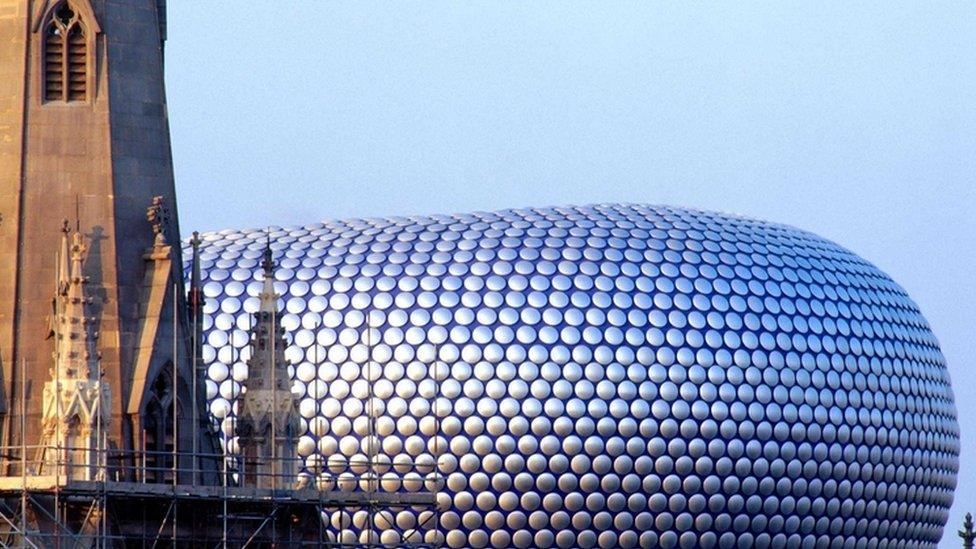
Iconic building: Abrini took a picture of Selfridges in Birmingham
This final man had been under suspicion since at least February 2013 after attempting to fly to Turkey and he was closely associated to Zakaria Boufassil.
Did Boufassil himself want to fight? In December 2014 he left the UK for a few months at the same time as a number of other suspects. What he did those two years ago remains unclear.
And the same can be said for the rest of IS courier Mohamed Abrini's time in the UK after he had got the cash.
After a night in a Birmingham casino, Abrini went to Manchester for two nights. He toured the Old Trafford stadium and took 30 photographs to add to a growing collection on his phone that already included Birmingham's Bullring shopping centre, a church and a mosque.
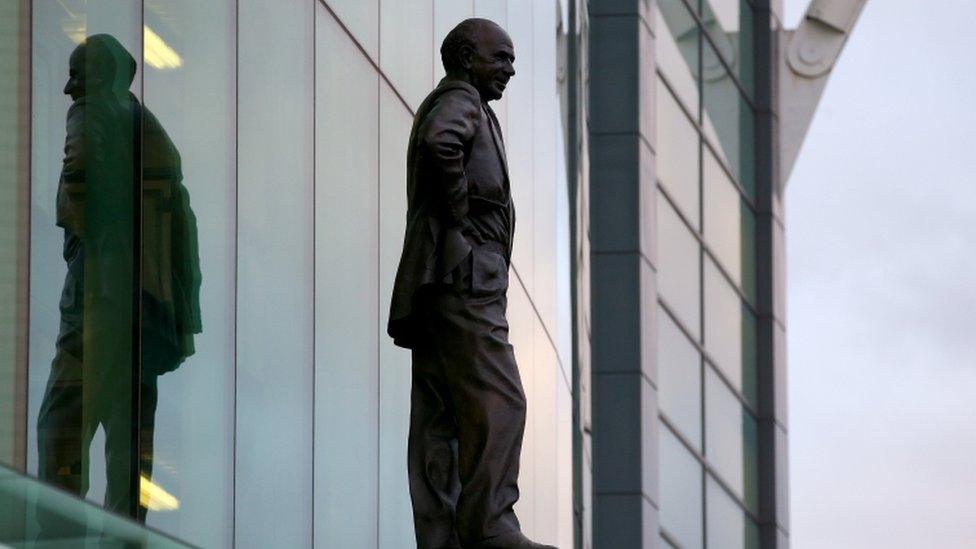
Old Trafford: Abrini snapped statue of Manchester United legend Matt Busby
What was he doing? Was the future Paris and Brussels suspect looking for targets? Was he in Manchester to pick up more cash?
Abrini has told Belgian prosecutors that there was "no plan to target England" because it was "more difficult to attack".
But on the face of things, Abrini's superiors risked an awful lot just to pick up £3,000 in a Birmingham park and indulge his gambling habits.
Abrini returned to Europe on 16 July and, according to his account, handed the cash to his handler's brother, Yassine Abaaoud.
He has claimed that Yassine then blew the cash on "going out, cars and clothes".
This may be possible - but a month before the Paris attacks, he was arrested as he entered Morocco, and has subsequently been jailed for terrorist offences.
Belgium and France criticised
Belgian and French authorities have already been criticised in their own countries for alleged intelligence failures in relation to the attacks - so when did they know about Abrini's visit and when did the UK find out?
Three months before the Paris attacks, Abrini gave a voluntary statement to Brussels police after hearing that he was potentially wanted. He admitted travelling from Turkey to Birmingham and Manchester but denied supporting IS.
When he was arrested and detained after the Brussels bombings, West Midlands Counter Terrorism Unit asked their Belgian counterparts to find out what Abrini had been doing in Birmingham - leading to the statement at the heart of Boufassil's trial.
Separately, in late 2015, MI5 had learned that an unnamed foreign national closely linked to IS had visited the UK "for a period of time".
There was a rapid assessment of his activity and connections and whether he was involved in attack planning. According to an official published report, teams were refocused and prioritised.
"The individual in question is now awaiting trial in another country for terrorist offences," it says. Is that individual Abrini? We don't know because the report doesn't say.
IS supergrass fear
The key unanswered question remains: Was the cash given to Abrini used for the Paris or Brussels attacks? The Crown Prosecution Service didn't have to say so in this trial. All they had to prove was that Boufassil had known who he was dealing with.
Belgian authorities haven't commented on the UK link to Abrini out of fear of compromising his future prosecution. But they have ordered banks to freeze assets belonging to the benefit fraudster Haddouchi.
As for Abrini, while he gave a statement, he then refused to co-operate any further.
Kingston Crown Court heard he fears that he will be seen as an IS supergrass - and that will endanger his family.